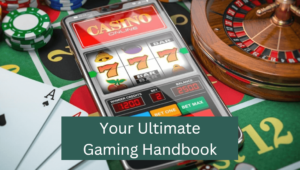The dazzling lights, the thrilling chime of a victory, and the suspense of the spinning reels – slot games create a distinctive mix of exhilaration and opportunity. But what is it that compels individuals to dedicate countless hours attempting to strike it lucky? Let’s explore the mental factors that contribute to the charm of slot games.
The Power of Random Rewards
At their essence, slot games operate on the principle of variable ratio reinforcement, meaning that wins are awarded at random intervals. Psychological research indicates that behaviors reinforced this way tend to persist longer. To put it simply, when one is uncertain about the timing of the next reward, they are more inclined to continue trying. This unpredictability appeals to our natural craving for surprise and the thrill of uncertainty.
Near-Miss Experiences
Have you ever experienced that moment when the reels seemed on the verge of aligning perfectly, but you just missed out on a significant win? This phenomenon isn’t coincidental. Such near-miss situations evoke feelings that are nearly as exhilarating as actual victories, triggering an adrenaline rush. Studies reveal that these near-misses can be just as stimulating, if not more so, than a real win, prompting players to keep spinning in search of that elusive jackpot.
Sensory Stimulation
Today's slot games are sensory experiences to behold. Striking visuals, captivating soundtracks, and tactile responses enhance the gameplay atmosphere. Every aspect of these sensory inputs is intentionally designed to heighten excitement and anticipation. Whether it’s the sounds, colors, or animations, everything works to amplify the emotional journey and entice players to continue their engagement.
The Illusion of Control
Although the results of slot games are governed by Random Number Generators and rely solely on chance, players often perceive a sense of control over their experience. Whether it's selecting the number of lines to bet on, deciding when to halt the spins, or choosing a specific machine, these decisions create a false sense of influence over the outcomes. This illusion of control can boost a player’s confidence and increase their investment in the game.
Escapism and Fantasy Fulfillment
Slot games frequently whisk players away to enchanting worlds—be it ancient cultures, magical kingdoms, or futuristic scenarios. This allows individuals to escape from the mundane aspects of daily life. While playing, participants can immerse themselves in alternate realities, experiencing stories and sentiments that are outside their usual existence.
Social Validation and Community
With the growth of online and social slots, there’s an additional layer of community and social recognition. Players can now celebrate their wins together, climb leaderboards, and even collaborate in gameplay. This social dimension taps into our intrinsic need for validation and camaraderie.
Conclusion
The attraction of slot games transcends mere luck and fortune. They tap into essential psychological concepts, from our yearning for unpredictable rewards to our desire for escapism. By comprehending the complex interplay between psychology and gaming, we can gain a greater appreciation for the art and science behind the slot machines that enchant millions around the world.






